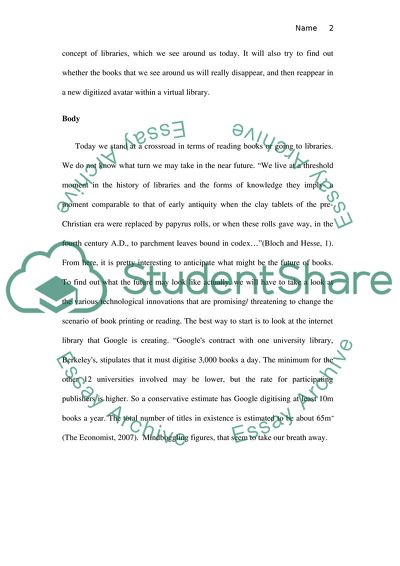Cite this document
(The Future of Books Essay Example | Topics and Well Written Essays - 1250 words - 1, n.d.)
The Future of Books Essay Example | Topics and Well Written Essays - 1250 words - 1. https://studentshare.org/culture/1735854-research-essay
The Future of Books Essay Example | Topics and Well Written Essays - 1250 words - 1. https://studentshare.org/culture/1735854-research-essay
(The Future of Books Essay Example | Topics and Well Written Essays - 1250 Words - 1)
The Future of Books Essay Example | Topics and Well Written Essays - 1250 Words - 1. https://studentshare.org/culture/1735854-research-essay.
The Future of Books Essay Example | Topics and Well Written Essays - 1250 Words - 1. https://studentshare.org/culture/1735854-research-essay.
“The Future of Books Essay Example | Topics and Well Written Essays - 1250 Words - 1”. https://studentshare.org/culture/1735854-research-essay.


